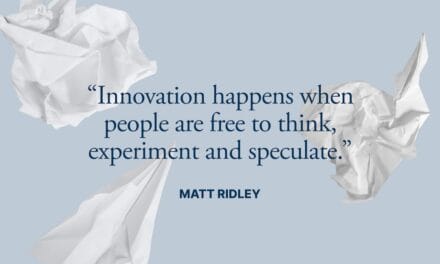In today's rapidly evolving business landscape, effective coaching methodologies that align with modern business leadership challenges have never been more critical. Research indicates that organizations prioritizing leadership development are 2.5 times more likely to outperform their competitors. As leaders face an array of obstacles—from navigating digital transformation to fostering collaborative team dynamics—investing in tailored coaching is essential for cultivating resilience and agility. This blog post will explore the innovative coaching methodologies that empower today's leaders to excel amidst uncertainty, transform challenges into opportunities, and drive their organizations toward sustained success.
Understanding Modern Business Leadership Challenges
The landscape of business leadership is constantly evolving, impacted by rapid technological advancements, shifting market demands, and an increasingly complex global environment. As a result, modern business leaders face a multitude of challenges that require innovative solutions and effective strategies. Here are some common challenges faced by executives today:
Navigating Change: Leaders must adapt to constant changes in technology and market dynamics, which can disrupt established practices.
Building Diverse Teams: The necessity of fostering a diverse and inclusive workplace necessitates leaders to develop new skills in collaboration and communication.
Managing Remote Workforces: With the rise of remote work, leaders must find ways to maintain engagement and performance among dispersed teams.
Striking a Work-Life Balance: The pressures of leadership can lead to burnout, making work-life balance an essential focus for sustainable success.
The Importance of Coaching in Leadership Development
Amid these challenges lies a powerful tool that can propel leaders toward success: coaching. Personalized coaching methodologies play a vital role in developing skills, enhancing self-awareness, and addressing specific challenges faced by leaders.
Benefits of implementing coaching in leadership development include:
Personalized Learning Experiences: Tailored coaching methodologies ensure that the unique needs of each leader are addressed.
Enhanced Decision-Making: Leaders gain insights and strategies that improve their ability to make informed decisions.
Increased Resilience: Coaching helps leaders develop the resilience necessary to navigate challenges effectively.
Key Coaching Methodologies That Align with Modern Business Leadership Challenges
Transformational Coaching
Transformational coaching focuses on inspiring significant personal change and fostering innovation. This methodology encourages leaders to embrace new ways of thinking and empowers them to navigate challenges creatively.
Situational Leadership Coaching
Situational leadership coaching allows leaders to adapt to diverse team dynamics. This flexibility helps leaders effectively respond to various situations and align their approach based on the needs of their team members.
Strengths-Based Coaching
Strengths-based coaching emphasizes leveraging individual strengths for team success. Leaders learn to identify and cultivate their own strengths as well as those of their team to create a more effective and harmonious work environment.
Cognitive-Behavioral Coaching
Cognitive-behavioral coaching addresses mental barriers and limiting beliefs. This methodology equips leaders with the tools to develop greater resilience and cope with setbacks, which is crucial in today’s demanding business climate.
Incorporating Technology into Coaching Methodologies
The integration of modern technology into coaching practices offers significant advantages for leaders. Digital tools can facilitate remote coaching sessions and provide valuable resources for skill enhancement.
Benefits of using technology in coaching include:
Enhanced Accessibility: Leaders can access coaching from anywhere, breaking geographical barriers.
Real-Time Feedback: Tools enable continuous assessment and feedback, helping leaders track their progress.
Data Analytics: Analytics can measure coaching effectiveness, providing insights to refine approaches further.
For a deeper understanding of how technology shapes coaching practices in business leadership, explore resources from reputable organizations like Harvard Business Review.
Tailoring Coaching Approaches to Individual Leaders
To maximize the impact of coaching, it’s essential to tailor approaches to each individual's leadership style and needs. Effective coaching begins with a thorough assessment of a leader’s goals, strengths, and areas for improvement.
Key steps include:
Individual Assessments: Use tools to evaluate leaders’ skill levels and identify gaps.
Customized Coaching Plans: Develop specific plans that align with the leader’s objectives and challenges.
Ongoing Feedback and Adaptation: Implement regular check-ins to evaluate progress and adjust coaching methodologies as needed.
By focusing on coaching methodologies that align with modern business leadership challenges, leaders can better equip themselves for success in an ever-changing corporate landscape. The investment in personal and professional development through coaching can yield substantial returns for both individuals and organizations alike.
Future Trends in Coaching Methodologies
As the demands of modern business leadership continue to evolve, so too do the coaching methodologies that support these leaders in navigating their challenges. Understanding future trends in coaching can provide valuable insights for leaders looking to stay ahead in their development and effectiveness.
The Impact of Remote Work on Coaching Strategies
The shift to remote work has fundamentally changed how coaching is delivered. This trend has fostered a new wave of coaching methodologies designed to address the complexities of leading dispersed teams. Key aspects of this trend include:
Virtual Coaching Platforms: These platforms allow for real-time communication and support, breaking down geographical barriers and enabling easy access for leaders.
Asynchronous Learning Tools: Resources like recorded workshops and webinars allow leaders to learn at their own pace, accommodating various schedules and time zones.
Focus on Digital Communication Skills: As leaders communicate primarily through digital means, coaching now emphasizes enhancing virtual communication, engagement, and team cohesion.
Emerging Methodologies to Watch
Several innovative coaching methodologies are on the rise that specifically cater to the evolving landscape of business leadership. Leaders should consider:
Agile Coaching: This methodology promotes adaptive and collaborative approaches typical in software development, enabling leaders to navigate rapid changes efficiently.
Mindfulness and Well-being Coaching: Incorporating mindfulness techniques helps leaders manage stress while fostering a positive work environment that prioritizes mental health.
Peer Coaching Networks: This approach encourages leaders to learn from one another through structured peer support systems, facilitating shared learning experiences.
Preparing for the Future of Business Leadership
To succeed in the increasingly dynamic business environment, leaders must be proactive in their development. Steps to prepare include:
Investing in Continuous Learning: Leaders should prioritize ongoing education by exploring new coaching methodologies that align with their specific leadership challenges.
Seeking Feedback: Regular feedback from peers and team members can guide leaders in refining their approaches and enhancing their effectiveness.
Being Open to Change: Cultivating a mindset that embraces change will enable leaders to adapt their coaching practices to emerging trends and realities.
By staying informed about the latest developments in coaching methodologies that align with modern business leadership challenges, leaders can better position themselves to overcome obstacles and lead their teams to success. For further insights into leadership trends and strategies, visit McKinsey & Company.
Conclusion
In the dynamic landscape of business leadership, the importance of effective coaching methodologies cannot be overstated. The challenges faced by today’s executives require innovative and adaptable strategies that foster both personal and organizational growth. By employing coaching methodologies that align with modern business leadership challenges, leaders can enhance their decision-making abilities, improve team dynamics, and cultivate a culture of continuous improvement.
Key Takeaways:
Adaptability is Essential: Modern coaching methodologies must be flexible and tailored to the unique circumstances of individual leaders and their teams.
Technology is a Game Changer: The integration of digital tools into coaching practices has opened up new avenues for accessibility and effectiveness.
Focus on Personal Development: Investing in coaching leads to significant benefits, including increased resilience, better work-life balance, and enhanced leadership skills.
In conclusion, embracing the right coaching methodologies can empower leaders to navigate the complexities of their roles successfully. By prioritizing personal development and staying attuned to emerging trends, leaders can not only overcome challenges but also drive their organizations toward sustained success. For further insights and resources on leadership coaching, consider exploring the offerings from Deloitte.
The Role of Coaching in Overcoming Leadership Challenges
In today’s fast-paced business environment, effective coaches can serve as invaluable partners for leaders striving to overcome various challenges. As leaders navigate complex landscapes, the right coaching methodologies provide essential support and guidance. Here’s how coaching plays a crucial role in addressing modern leadership challenges.
Enhancing Decision-Making Skills
Leaders often face pressure to make quick yet informed decisions. Coaching methodologies can enhance decision-making skills by:
Encouraging Critical Thinking: Coaches help leaders develop the ability to analyze situations critically and consider various perspectives before making decisions.
Providing Frameworks: Structured coaching methods offer frameworks that assist in weighing pros and cons effectively.
Improving Confidence: Regular coaching sessions can bolster a leader's confidence in their decision-making capabilities, leading to more impactful outcomes.
Building Stronger Teams
Effective teamwork is essential for organizational success. Coaching methodologies also facilitate stronger team dynamics by:
Promoting Communication: Coaching can teach leaders techniques for better communication, ensuring clarity and transparency within teams.
Fostering Collaboration: Coaches facilitate activities that encourage collaborative problem-solving, allowing teams to leverage diverse perspectives.
Addressing Conflicts: One-on-one coaching helps leaders develop conflict resolution skills, essential for maintaining a harmonious work environment.
Navigating Change and Uncertainty
Change is a constant in the business world. Coaching methodologies prepare leaders to navigate change by:
Developing Adaptability: Coaches instill a mindset of agility, positioning leaders to respond effectively to unexpected challenges.
Encouraging Resilience: Coaching methodologies emphasize resilience, helping leaders bounce back from setbacks and lead their teams through transitions.
Creating a Vision: Coaches assist leaders in articulating a clear vision, fostering alignment and motivation during periods of change.
To deepen your understanding of how coaching can drive leadership effectiveness, consider resources from Gallup. By leveraging coaching methodologies that align with modern business leadership challenges, leaders can enhance their ability to navigate complexities and drive their organizations toward success.
The Importance of Continuous Learning in Leadership Coaching
In a world characterized by rapid change and innovation, continuous learning has become essential for business leaders. Effective coaching methodologies not only promote immediate skill enhancement but also encourage a lifelong learning mindset. Here are several reasons why continuous learning is crucial in coaching methodologies that align with modern business leadership challenges.
Embracing Lifelong Learning
Continuous learning fosters a culture of growth and adaptability within organizations. Here are some key benefits:
Staying Relevant: Leaders who continuously learn are better equipped to stay abreast of industry trends and evolving technologies.
Enhancing Problem-Solving Skills: Ongoing education allows leaders to approach challenges from diverse angles, improving their ability to find innovative solutions.
Encouraging a Growth Mindset: A commitment to learning encourages leaders to view challenges as opportunities for growth, fostering resilience in the face of adversity.
Leveraging Coaching Methodologies for Learning
Innovative coaching methodologies empower leaders to integrate continuous learning into their development journey:
Action Learning: This approach involves real-time problem-solving within their organization's context, allowing leaders to learn through practical experience.
Feedback Loops: Regular feedback from coaches and peers provides insights that facilitate ongoing improvement and adjustment of leadership styles.
Micro-Learning: Short, focused learning sessions can be integrated into daily routines, making learning more manageable and less overwhelming.
Creating a Learning Organization
Coaching methodologies that prioritize continuous learning can help cultivate a learning organization. This can be achieved by:
Embedding Learning into Culture: Encourage a culture where everyone values knowledge and contribute to shared learning experiences.
Supportive Environment: Establish an environment where leaders and employees feel comfortable sharing ideas and challenges, promoting open discussions and collaboration.
Utilizing Technology: Implementing learning management systems and platforms can facilitate access to resources and learning materials, ensuring that everyone has the opportunity to grow.
For further insights on the importance of continuous learning in leadership, consider exploring resources from Harvard Business School. Investing in coaching methodologies that align with modern business leadership challenges prepares leaders not only to overcome current obstacles but also to thrive in the future.
Integrating Emotional Intelligence in Leadership Coaching
Emotional intelligence (EI) is a critical component of effective leadership in today's business environment. Coaching methodologies that align with modern business leadership challenges must incorporate EI to help leaders develop strong interpersonal skills and foster positive workplace relationships. Let’s explore how emotional intelligence can be seamlessly integrated into leadership coaching.
Understanding the Components of Emotional Intelligence
Emotional intelligence consists of several key components that contribute to effective leadership:
Self-Awareness: Understanding one’s emotions, strengths, weaknesses, and triggers allows leaders to navigate challenges maturely.
Self-Regulation: The ability to manage emotions effectively helps leaders maintain composure and respond thoughtfully to pressure.
Empathy: Empathetic leaders can connect with their team members, understand their perspectives, and foster a compassionate work environment.
Social Skills: Strong social skills enable leaders to communicate effectively, resolve conflicts, and build cohesive teams.
Coaching Methodologies for Enhancing Emotional Intelligence
To develop emotional intelligence in leaders, specific coaching methodologies can be employed:
Reflective Practice: Coaches encourage leaders to engage in self-reflection to identify emotional patterns and responses in different situations.
Emotional Coaching: This methodology focuses on helping leaders recognize and manage their emotions while enhancing their ability to read and respond to the emotions of others.
Role-Playing Scenarios: Practicing real-life situations through role-playing can provide leaders with insights into emotional triggers and effective responses.
The Benefits of Emotionally Intelligent Leadership
Leaders who develop their emotional intelligence through effective coaching methodologies can experience numerous benefits, including:
Improved Team Morale: Emotionally intelligent leaders foster an inclusive environment, enhancing team spirit and overall employee satisfaction.
Better Decision Making: With heightened awareness of their emotions and those of others, leaders can make more informed and balanced decisions.
Enhanced Conflict Resolution: By recognizing emotional cues, leaders can navigate conflicts more effectively, fostering collaboration and harmony among team members.
For further information on the significance of emotional intelligence in leadership, refer to resources from Daniel Goleman, a pioneer in the field of emotional intelligence. By integrating coaching methodologies that align with modern business leadership challenges and emphasizing emotional intelligence, leaders can drive their organizations toward greater success and resilience.
The Critical Role of Feedback in Leadership Development
Feedback is an essential element of effective leadership development. For coaching methodologies that align with modern business leadership challenges, incorporating structured feedback processes fosters growth, encourages reflection, and drives continuous improvement. Here’s how feedback plays a pivotal role in enhancing leadership capabilities.
Types of Feedback in Coaching
Different types of feedback can be utilized in coaching to support leadership development:
Constructive Feedback: This type focuses on providing specific, actionable insights that can help leaders identify areas for improvement.
Positive Reinforcement: Recognizing and affirming a leader's strengths and achievements can have a motivating effect, encouraging them to continue excelling.
Peer Feedback: Gathering insights from colleagues and team members provides leaders with diverse perspectives and a well-rounded understanding of their impact.
Strategies for Implementing Effective Feedback
To maximize the benefits of feedback in leadership coaching, consider the following strategies:
Regular Check-ins: Establishing consistent feedback sessions ensures that leaders receive timely and relevant insights, facilitating ongoing development.
Goal Setting: Collaboratively setting measurable goals allows leaders to track their progress and focus on specific areas for improvement.
Feedback Culture: Encourage an organizational culture where feedback is seen as a tool for growth rather than criticism, promoting openness and receptiveness to feedback.
The Benefits of a Feedback-Driven Coaching Methodology
Integrating feedback into coaching methodologies offers several advantages for leaders, including:
Enhanced Self-Awareness: Regular feedback helps leaders gain insights into their behavior and decision-making processes, leading to greater self-awareness and personal growth.
Improved Performance: Constructive feedback identifies areas of strength and development, encouraging leaders to refine their skills for better outcomes.
Stronger Relationships: A culture of open communication fosters trust and collaboration among team members, enhancing overall team dynamics.
For an in-depth exploration of the role of feedback in leadership development, resources from Forbes can provide valuable insights. By incorporating feedback into coaching methodologies that align with modern business leadership challenges, leaders can foster an environment of continuous learning and excellence, driving their organizations toward sustained success.
What are coaching methodologies that align with modern business leadership challenges?
Coaching methodologies that align with modern business leadership challenges are structured approaches designed to address the specific needs and complexities faced by today’s leaders. These methodologies incorporate diverse techniques, such as transformational coaching, cognitive-behavioral coaching, and strengths-based coaching, to help executives develop essential skills, enhance decision-making, and foster effective team dynamics.
How can coaching benefit business leaders?
Coaching offers numerous benefits for business leaders, including improved self-awareness, enhanced communication skills, and increased resilience. By engaging with a coach, leaders receive personalized support that helps them navigate challenges, adapt to change, and develop strategies that drive their organizations forward. Ultimately, the goal of coaching is to empower leaders to reach their full potential and lead more effectively.
What role does emotional intelligence play in coaching?
Emotional intelligence plays a crucial role in coaching by helping leaders understand and manage their emotions, as well as recognize and influence the emotions of others. Higher emotional intelligence can lead to better decision-making, improved team collaboration, and enhanced conflict resolution skills. Coaches often emphasize emotional intelligence in their methodologies to ensure leaders can foster strong relationships and create a positive work environment.
How does technology enhance coaching methodologies?
Technology enhances coaching methodologies by providing tools and platforms that facilitate remote coaching sessions, enable real-time feedback, and consolidate learning resources. Digital tools such as video conferencing, learning management systems, and other online resources make coaching more accessible and flexible, allowing leaders to engage in their development at their convenience and track their progress effectively.
How can organizations implement a coaching culture?
To implement a coaching culture, organizations should prioritize leadership development and encourage an environment where feedback and open communication are valued. This can be achieved by providing coaching resources, facilitating peer coaching opportunities, and promoting regular check-ins for continuous growth. By embedding coaching into the organizational framework, leaders are better equipped to face challenges and foster a collaborative and innovative workplace.





